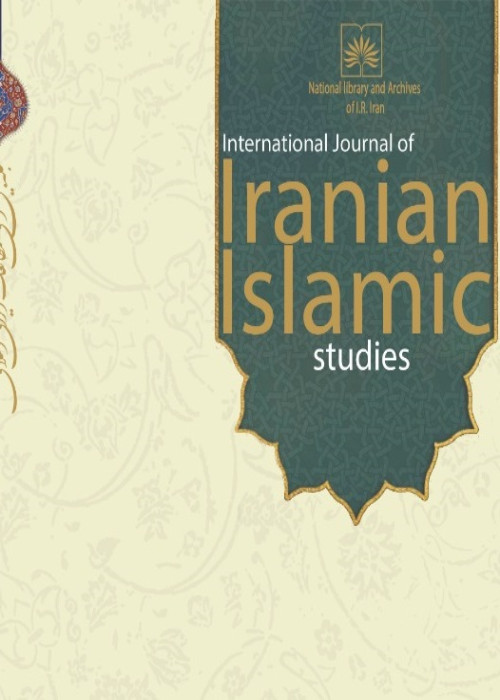From sugar to Egyptian robe in Persian poetry: Reflection of Iran-Egypt trade relations in Persian literature
Author(s):
Article Type:
Research/Original Article (بدون رتبه معتبر)
Abstract:
With the title of "Dome of Islam", Egypt has always had a high position from a political, economic and cultural point of view, and this prestige has greatly increased in the Islamic period. Among the Iranians, from ancient times to the present day, Egypt has had a high status and this importance is also evident in Persian poetry. Poetry is not the only field of poetic charisma that can be a way for gaining historical knowledge. The present article intends to shed light on the type of trade relations between Iran and Egypt from the perspective of Persian literature. In this regard, after enumerating the commercial goods of Egypt, such as sugar cube, sugar, oil and robes in Persian poetry, we relied on the data contained in the poems based on historiographical sources and compared the list of goods with historical records. By statistical analysis methods, a positive correlation was inferred between the high frequency of the names of Egyptian items in Persian poetry and the prosperity of trade exchanges between Iran and Egypt, and even the ups and downs of these exchanges and more important goods were identified. The results of the study of the frequency of Egyptian commercial goods in Persian poetry have shown that sugar has the highest frequency with 45 repetitions. Based on this, it can be considered as the main Egyptian goods in the period in question, sugar cubes and sugar products, which due to their sweetness, were more in line with the themes of the poems and also seem to have been important Egyptian goods. Using verses that include one of the commercial items of Egypt, according to the year of writing the poetry and the period of life of each poet, the assumption of greater prosperity of trade with Egypt in the period is proposed. Therefore, the poets who have mentioned these merchandises more than others have been Rumi, Khaghani, Saadi, Seif Forghani, respectively. These four poets lived in the sixth and seventh centuries AH. Also, Khwaju Kermani, Hafez, Shah Nimatullah Wali and Salman Savoji belonged to the eighth century. It seems that according to Persian poetry in the sixth, seventh and eighth centuries AH, trade relations between Iran and Egypt were very prosperous. In this regard, the total number of verses written by these poets should be taken into account. Similarly, the total number of verses left by Rumi is more than all the poets whose names appear in this list. As a result, it is necessary to measure the frequency of Egyptian commercial goods in the poetry of each poet in relation to the total number of his poems. According to this statistical analysis, the four poets who have included more Egyptian business items in their poetry than all their other poems are Khaqani, Saadi, Seif Farghani, and Khwaju Kermani. Historians such as Moqaddasi, Tabari, and Masoudi have cited numerous commercial items from Egypt in their reports. Many poets have used these items and their features in their poems and in line with their subject matter. Naturally, the number of Merchandises listed by historians is much higher than this number in Persian poetry. But what is relevant in this article is the compatibility of these two areas in the goods attributed to Egypt. In other words, should it be specified that there is a commodity in the poems that historians have not named? In this case, the historical accuracy of the content of those poems can be questioned. However, the study did not show such an inconsistency, and the ten items that Iranian poets attributed to Egypt in their poems appear exactly in the large list of items that Masoudi and Moqaddasi presented. This alignment between literature and history includes even more significant goods than it does the type of commodity. According to a report by Tabari on an attack on Egypt, sugar and flax have been looted. From this report, the most important commercial items of Egypt are deduced. In the poems, sugar cubes and sugar have the highest frequency, which indicate the importance of this high-quality Egyptian product.
Keywords:
Language:
Persian
Published:
Journal of Iranian Islamic Studies, Volume:11 Issue: 1, 2021
Pages:
21 to 40
magiran.com/p2500370
دانلود و مطالعه متن این مقاله با یکی از روشهای زیر امکان پذیر است:
اشتراک شخصی
با عضویت و پرداخت آنلاین حق اشتراک یکساله به مبلغ 1,390,000ريال میتوانید 70 عنوان مطلب دانلود کنید!
اشتراک سازمانی
به کتابخانه دانشگاه یا محل کار خود پیشنهاد کنید تا اشتراک سازمانی این پایگاه را برای دسترسی نامحدود همه کاربران به متن مطالب تهیه نمایند!
توجه!
- حق عضویت دریافتی صرف حمایت از نشریات عضو و نگهداری، تکمیل و توسعه مگیران میشود.
- پرداخت حق اشتراک و دانلود مقالات اجازه بازنشر آن در سایر رسانههای چاپی و دیجیتال را به کاربر نمیدهد.
In order to view content subscription is required
Personal subscription
Subscribe magiran.com for 70 € euros via PayPal and download 70 articles during a year.
Organization subscription
Please contact us to subscribe your university or library for unlimited access!


